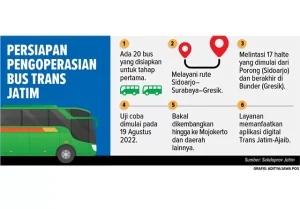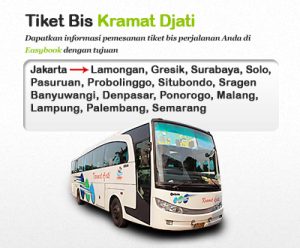Packing Tips for a Rute Bus Wisata Religi
Essentials to Bring on a Religious Bus Tour
When preparing for a Rute Bus Wisata Religi, it’s crucial to pack thoughtfully to ensure you are comfortable throughout your journey, while also being respectful of the religious practices and sites you will be visiting. Here’s a list of essentials you should bring:
-
Comfortable Clothing: Since you will be visiting a variety of religious sites, it’s essential to dress modestly and comfortably. Lightweight, breathable fabrics are ideal for long bus rides and hot weather, especially in regions like Java and Sumatra. For temples and mosques, both men and women should dress conservatively, covering arms and legs. Many religious sites will provide sarongs or shawls for visitors who may not be dressed appropriately.
-
Sun Protection: Indonesia’s tropical climate can be hot and sunny, so be sure to pack sunscreen, sunglasses, and a hat to protect yourself from the sun. These items will come in handy when you are visiting outdoor temples, beaches, or other attractions.
-
Water and Snacks: While most bus tours will include meal breaks, it’s always a good idea to carry water and snacks to keep hydrated and energized. This is particularly important if you are visiting remote areas where food and water facilities may not be readily available.
-
Religious Items: If you are embarking on a pilgrimage or spiritual journey, you may want to bring religious items that are meaningful to you, such as a prayer book, a prayer rug, or beads for meditation. It’s also good to carry a camera or journal to document your experiences and reflect on your spiritual journey.
-
First Aid Kit: A small first aid kit with essentials like pain relievers, band-aids, and antiseptic wipes can be very useful. It’s always better to be prepared, especially if you are traveling to less urbanized areas.
Dressing Appropriately for Religious Visits
When visiting religious sites in Indonesia, always be respectful of local customs. Dressing modestly is an important part of being respectful to the communities you are visiting. For example:
-
In Mosques: Both men and women should cover their heads, arms, and legs. If you’re visiting a mosque, you might need to remove your shoes before entering, and women may be required to wear a hijab (headscarf). Many mosques provide these garments at the entrance for visitors who are not dressed accordingly.
-
In Temples: When visiting Hindu or Buddhist temples, it is customary to wear clothing that covers your shoulders and knees. Women may be asked to cover their hair in some temples, especially in Bali.
-
In Christian Churches: Similar to mosques and temples, Christian churches expect visitors to dress modestly. Women should avoid wearing short skirts or dresses, and both men and women should ensure their attire is respectful.
Etiquette and Cultural Considerations During Wisata Religi
Respecting Local Traditions
While traveling on a Rute Bus Wisata Religi, you’ll come across a variety of religious practices and cultural norms that may differ from your own. It’s important to be aware of and respect these customs to ensure that your visit is meaningful and that you don’t unintentionally offend local communities. Here are some general tips:
-
Follow the Rules of the Religious Sites: Many religious sites have specific rules that visitors must follow, such as removing shoes before entering a temple or mosque, maintaining silence in certain areas, or refraining from taking photographs. Always listen to your guide or the local staff and follow the instructions.
-
Be Quiet and Respectful: When visiting sacred places, it’s essential to keep noise to a minimum. Respect the solemnity of the environment, especially in places of worship or prayer. Avoid loud conversations and always be mindful of the spiritual atmosphere.
-
Offer Donations or Support: In many religious sites, it is common to make a small donation to support the upkeep of the site or to assist local religious communities. If you are moved by the experience, consider offering a donation or buying religious souvenirs as a way of supporting the preservation of these cultural treasures.
Understanding Religious Practices and Rituals
Religious tours often offer the opportunity to observe rituals and ceremonies that are central to the practices of different communities. It’s important to approach these with an open heart and a sense of curiosity. Some key points to keep in mind:
- Observe, Don’t Interfere: When observing rituals, it’s important not to interfere or interrupt. If you’re unsure about a ceremony or prayer, it’s always okay to quietly observe from a distance, unless invited to participate.
- Ask Questions Respectfully: If you are interested in learning more about the religious practices, don’t hesitate to ask your guide or a local practitioner. Just be sure to ask in a respectful and thoughtful manner, understanding that some practices may be deeply personal.
Rute Bus Wisata Religi for Family and Group Travel
Why Bus Tours Are Ideal for Families
Traveling on a Rute Bus Wisata Religi can be a great family experience. For families with children, a bus tour offers convenience and safety, allowing the entire family to enjoy the trip together without worrying about logistics. The journey becomes a shared experience, with opportunities for learning, reflection, and bonding.
-
Convenience for Parents: With children in tow, the convenience of having everything organized—transportation, accommodation, and meals—is invaluable. This reduces stress and allows parents to focus on enjoying the experience.
-
Educational Opportunities: Religious tours offer families the chance to learn about different cultures and religious practices in a meaningful way. Children can gain a deeper understanding of the world around them while visiting significant religious landmarks, helping them grow into more culturally aware individuals.
-
Family-Friendly Stops: Many Rute Bus Wisata Religi include family-friendly stops, such as parks, nature reserves, or cultural centers, allowing families to take breaks and enjoy some leisure time while still being immersed in the spiritual experience.
Group Travel Tips for Religious Tours
Traveling with a group can be a highly rewarding experience. For religious groups or communities, bus tours provide an opportunity to connect with fellow believers and share in a spiritual journey together. Here are some tips for making the most of your group tour:
-
Stay Together: With large groups, it’s important to stay together during visits to religious sites to ensure everyone is accounted for and that the group remains respectful. Group leaders should ensure that everyone knows the schedule and itinerary for the day.
-
Respect Diverse Beliefs: Group tours often bring together people from diverse backgrounds. While you may share a common interest in religious tourism, you may come across different belief systems. Be respectful and open-minded, as this can make the experience richer and more fulfilling for everyone involved.
-
Participate in Group Activities: Many bus tours include group prayers, reflections, or discussions, which provide an opportunity for participants to share their thoughts and experiences. Engaging in these activities can foster deeper spiritual connections with the group.
How to Make the Most of Your Bus Wisata Religi Experience
Engaging with Local Guides and Experts
One of the most enriching aspects of a Rute Bus Wisata Religi is the opportunity to learn from local guides and experts. These guides are often deeply knowledgeable about the religious sites, history, and culture, and can offer valuable insights into the significance of the places you’re visiting.
-
Ask Questions: Don’t be afraid to ask your guide questions about the sites, rituals, or history of the region. This is an opportunity to learn more than just the basics of a religious site.
-
Listen to Local Stories: Often, local guides can share personal stories or anecdotes that provide a more intimate understanding of the religious site. Take the time to listen, as these stories can help you connect with the place on a deeper level.
-
Respect Their Expertise: Recognize that your guide is an expert and that their knowledge of the area and the religious practices is valuable. Pay attention to their explanations, and be respectful of the way they present information.
Activities to Enhance Your Religious Journey
To make your Rute Bus Wisata Religi experience even more meaningful, consider engaging in activities that go beyond just visiting religious sites:
-
Reflection Time: Many religious sites provide quiet areas for meditation or reflection. Take some time to pause and contemplate the significance of what you’ve experienced, especially after visiting a particularly impactful site.
-
Journaling: Keeping a travel journal is a great way to capture your thoughts, experiences, and reflections on your religious journey. This can be a way to record moments of spiritual growth or personal insight that occur during your trip.
-
Connecting with Fellow Travelers: Discussing your experiences with fellow travelers can be an enriching experience. Share stories and insights, and take the opportunity to learn from the perspectives of others.
Conclusion
Summary of the Importance of Rute Bus Wisata Religi
Rute Bus Wisata Religi offers a convenient, comfortable, and socially enriching way to explore Indonesia’s rich religious heritage. By visiting religious sites, experiencing spiritual rituals, and engaging with local communities, travelers gain a deeper understanding of faith and culture. Whether you’re on a pilgrimage, a cultural exploration, or simply seeking spiritual growth, these bus tours provide an ideal way to connect with the sacred landmarks and traditions that make Indonesia unique.
Final Thoughts on Planning Your Journey
When planning your Rute Bus Wisata Religi, take the time to consider your personal interests, the regions you wish to visit, and the specific spiritual experiences you seek. With thoughtful preparation and an open heart, you’ll find that these religious tours not only offer an opportunity to learn about Indonesia’s diverse religious practices but also provide a meaningful journey for personal reflection and growth.
FAQs
-
What is the best time of year to go on a Rute Bus Wisata Religi?
- The best time for these tours is typically during the dry season (April to October), although religious festivals and holidays like Ramadan or Nyepi provide unique opportunities for travelers to experience the local culture.
-
Do I need to dress in a particular way when visiting religious sites in Indonesia?
- Yes, modest clothing is required at most religious sites. Women should cover their shoulders and knees, and some sites may ask women to cover their heads.
-
Is it possible to travel on a religious bus tour with young children?
- Yes, many religious bus tours are family-friendly, with activities and sites that are suitable for children. However, it’s important to plan for long travel times and ensure the children are comfortable.
-
Can I participate in religious ceremonies during the tours?
- Participation is typically respectful, but you should always check with the guide and the local community before joining in a ceremony. Most tours allow for observation of rituals.
-
Are there any health precautions I should take when traveling on a Rute Bus Wisata Religi?
- Ensure you are up to date on any necessary vaccinations and carry a basic first aid kit. It’s also a good idea to stay hydrated and carry snacks for longer travel days.
Please don’t forget to leave a review.
Explore more by joining me on BuyMeACoffee / Patreon








